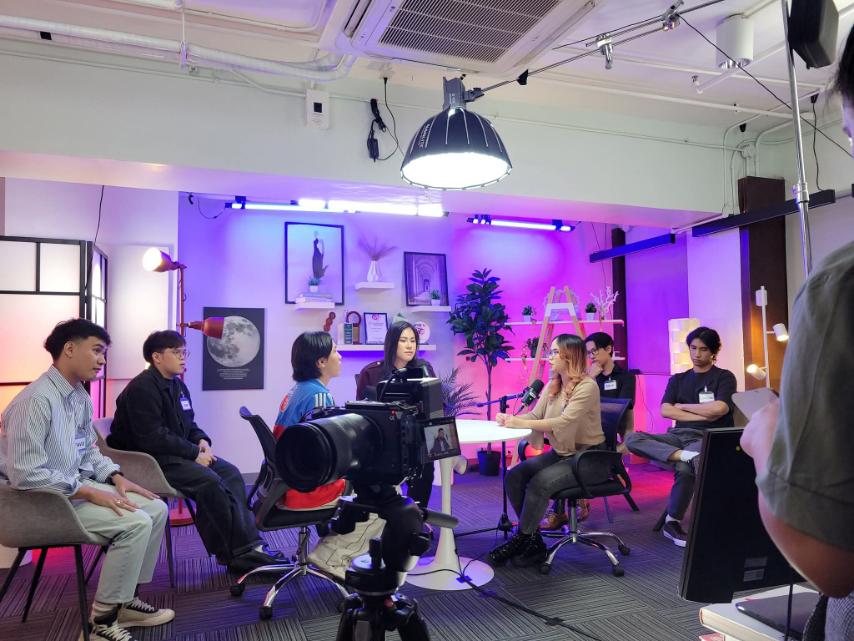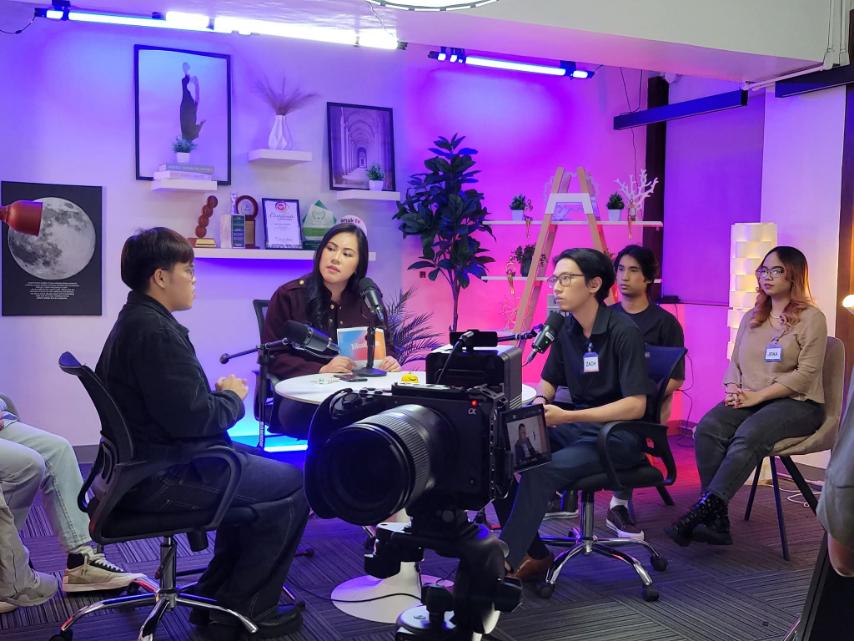
By Neena Mae Rayos | PTV Public Affairs intern
Join us on Thursday’s episode of “Iskoolmates” and find out what our debaters have to say about bringing “Sex Education in Primary and Secondary Schools.”
Two students from Pamantasan ng Lungsod ng Valenzuela and one from Bulacan State University will represent the “Pro side”—Genesis Baculbas, Josh Alom, and David Calooy, respectively—while three students from Mapua University will represent the “Con side”—Jena Co, Zach Pascual, and Lordane Evangelista—for yet another informative and refreshing discussion about Gen Z’s perspectives on a timely issue.
Before commencing the debate, host and facilitator Tricia reminded the guests that this intellectual discussion does not require exact right or wrong answers: “Labanan ng utak, hindi ng galit.”
To Teach
Answering the first question on whether sex education must be taught in primary and secondary schools, Genesis stresses that education is a fundamental human right: “It is our right to have information [about] sexuality; it is our right to have education about these kinds of topics.”
While Jena agrees with Genesis’ opinion, she counters that sex education is a topic best tackled at home. The Mapua student raises the age-old question: Should teachers take on the task of delivering sex education or should parents be the primary providers of this crucial knowledge?
“Dapat mas centralized at mas focus sa kabataan ‘yong sex education in the sense na dapat sisimulan ito sa ating mga tahanan,” Jena says. “Mas kilala ng magulang ang mga kanilang anak at compare mo sa mga guro na madaming hinahawakan na bata.”
System and Structure
The discussion continues with the structure and system of the curriculum as David and Lordane argue on the question, “Handa nga ba ang Pilipinas, based on resources at training ng mga teachers natin, na ma-implement ng maayos (ang sex education)?”
David answers in the affirmative, citing the Policy and Guidelines on the Implementation of Comprehensive Sexuality Education established by the Department of Education (DepEd) in 2018.
“Kanina kung tinatanong ni Ma’am Jena kung credible ba ‘yong mga teachers—yes kasi nagkakaroon ng maayos na pagsasalin para maging credible ‘yong mga teachers natin,” David says.
Lordane, however, expresses concern on the credibility of said guidelines if it truly is ready to be taught and implemented in the best possible way.
“Sa Pilipinas systematically inferior tayo compared sa western countries so lacking talaga tayo sa resources kasi more focused tayo sa mga ibang bagay,” he counters, mentioning infrastructure and salaries of the workforce as examples.

Positive and Negative Aspects
Meanwhile, the next set of debaters decide to elaborate on the previous exchange—with Josh picking up where Lordane has left off, pointing out how Filipinos should first and foremost focus on the problems that are occurring in the country.
They continue, “Level by level, kaya natin ieducate mga estudyante when it comes to sex education.”
Zach, on the other hand, adds that there are still flaws in the curriculum itself, not just on the structured guideline of sex education.
“Even students nowadays don’t get to apply these lessons that (they) learn so what more about sex education?” he says. “Hindi kayang tutukan ng mga teachers isa-isa ang mga estudyante.”
What does the expert have to say?
To further shine light on the topic, Tricia and co-host James Ramada chat and deliberate with Lawrence Dela Cruz from DepEd, who focuses on how the parents and teachers should complement each other in educating the children.
“Hindi naman talaga maibibigay ng school lahat-lahat ng bagay na kinakailangan ng mga nag-aaral when it comes to comprehensive sexuality education,” Dela Cruz said.
Sir Lawrence also expounds on the guidelines for the Comprehensive Sexuality Education here in the Philippines: “Age and developmentally appropriate, it comes [by] the grade level.”
He even states that even before DepEd Order No. 31 was implemented, sex education itself was being taught in the lens of reproductive health—the difference is the focus and importance of a more detailed subject on the matter.
“Binibigyan natin ng diin kasi nga there’s an issue, kagaya ng rising teenage pregnancy also ‘yong HIV rates natin tumataas and it is alarming kasi bumabata ang (HIV) cases,” He laments. “So if ever na sino ba [ang ating] targetin—that would be our adolescents, our children, the youth.”
This episode of Iskoolmates shows that there is still more to the issue than meets the eye; there are still various points of view that have their own merit and arguments that need to be discussed.
Both parties agree that sex education is important, especially for future generations. It all comes down to the safety of the children as well as the dedication put into the education that they are receiving.
—bjlc / av
